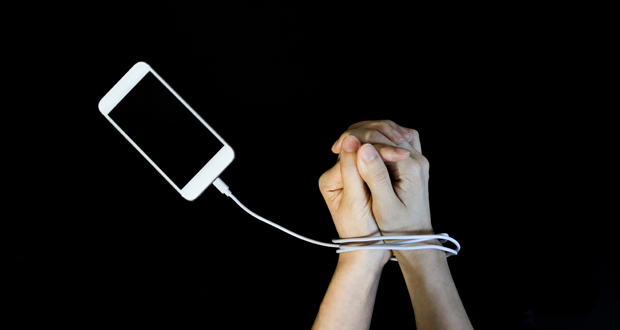“I will just reply to this email.”
Health care professionals have likely found themselves saying this in their head or to a loved one but a new study has warned that continuing to work after hours affects productivity, sleep and stress.
The bad
The University of South Australia study of 230 healthcare employees over two years found that work-related tasks like emailing and checking devices after hours makes it harder to recharge for the next day.
In a paper published in Environmental Research and Public Health, the researchers, along with those from the Netherlands and Japan, said employees seem to continuously draw on identical resources as those needed during working hours. This can empty an employee’s resource reservoir, they said.
“Modern technologies such as smartphones and tablets as well as social media imply that employees stay tuned to work while having leisure time,” the study read. “This could create a 24/7 availability for work-related tasks, and makes boundaries between work and home invisible.”
The researchers said while there is mounting evidence on the consequences of high job demands, less attention has been paid to the role of out-of-work recovery from job strain.
So they decided to look into the different types of off-job recovery activities to find out which help people bounce back.
The good
While the study confirmed that work-related activities affect people’s mental and emotional recovery states after work, other tasks that might seem exhausting like housework, cooking and looking after children are actually positively related to sleep quality in the long run.
Lead researcher Adjunct Professor Jan de Jonge said these latter activities are both resource-depleting and enhancing, helping people to disengage from the job and get a better night’s sleep.
de Jonge said low-effort activities such as reading, watching television or listening to music also help people detach from work and ensure good sleep.
“In general, we believe that employees should spend leisure time on leisure activities that they like most," the study's authors said.
The mixed
de Jong added previous research has shown that a daytime nap of around 30 minutes helps to restore alertness and improve productivity.
But the researchers were unable to confirm this positive effect in their study and said only short naps are able to restore daytime arousal levels and improve cognitive functioning and emotional state.
Naps taken during the post-lunch dip seem to be particularly effective, compared to those taken in the morning or evening, they said. The team also warned that frequent and longer naps may lead to adverse health effects in the long run.
The study also suggested employees with sleep troubles be wary of working out too close to bedtime. “Adrenaline and cortisol levels are high, the brain is active, and it is difficult to wind down,” they wrote. “If people fall into that group and have experienced trouble sleeping after a late-day workout, it is recommended that physical exercise is minimised within three or four hours of bedtime.”
Professor Maureen Dollard, director of UniSA’s Asia Pacific Centre for Work, Health and Safety, said employers need to take some lessons away from the study findings.
“Managers need to create a climate in which working beyond regular hours is not ‘business as usual’ as taking work home impedes cognitive function and productivity,” Dollard says. “Both managers and employees should find creative ways to accomplish job demands within regular work hours.”
Do you have an idea for a story?Email [email protected]
 Nursing Review The latest in heathcare news for nurses
Nursing Review The latest in heathcare news for nurses

